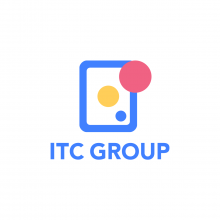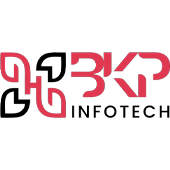
There are 49 Companies in Australia
that provide C development Services!
Australia is considered one of the most promising countries with an ICT tradition. With a good research infrastructure, experienced workforce, and friendly environment it has a constantly growing IT industry that attracts both investors and clients.
Discover Top IT Companies in Australia specialized in C and other related services. Find the best IT service providers for your projects.
C is a high-level programming language with a long and storied history. It was created in the early 1970s and is known for its simplicity, power, and versatility. C has played a foundational role in the development of many other programming languages and is widely used in various software development domains.
Handpicked companies • No obligation to hire • 100% risk-free
Featured Companies in Australia
This month, the following C development companies managed to provide an outstanding service and support. It's worth taking a look.
Techgropse is a leading Mobile App and Web Development Company, dedicated to turning innovative ideas into remarkable digital solutions. 500+ Clients

Dotsquares Technology Verified Company
Glen Waverley, Australia Head office in: United Kingdom
Dotsquares is a global technology company with over 1000 professionals specialising in development, design, marketing, and management.
Explore Top C development Companies in Australia

Addus Technologies Verified Company
New South Wales, Australia Head office in: India
Web3 Development Company
Services:
Fire Bee Techno Services is an ISO Certified Blockchain and AI Development Company In india and across the world with 13+ years of experience.
Services:
Adelaide Website Design, Graphic Design, Web Development and SEO Adelaide Agency
Services:

RevInfotech Inc Verified Company
Cranbourne, Australia Head office in: United States
Revolution Redefined
Services:
A global partner for all things marketing. We're not just a marketing agency – we're a brand's growth champions.
Services:
Infotech Solutions for your Business
Services:

Wollongong, Australia Head office in: Vietnam
Global trusted technology partner for business’s digital success.
Digital marketing agency helping businesses grow through innovative strategies and creative solutions.
Services:
Leading Digital Services & Solutions Provider
Services:

Juara IT Solutions Verified Company
Queensland, Australia Head office in: India
We are committed to delivering cutting-edge technology that transforms sustainable growth.
Services:
From your brand identity & social media posts to firm management softwares & web/mobile applications- you'll get everything here! [email protected]
Services:
Outsource Web Development India | PHP Development Company | AngularJS Developer | MEAN Stack | Full Stack | iPhone App | Android App | Educational ERP
Services:
Web design & Development | App Development | SEO Services Sydney
Services:
Amin Softtech is a custom software development company revolutionising industries with innovative solutions. Empowering businesses through technology.
Filter C development Companies in Australia by Cities
Dive deeper and find the company you need close to you or, from a specific city you prefer. Some of the best companies come from smaller places
Find more C development companies around the world
TechBehemoths is the world's most advanced and user-friendly platform to match IT Companies with real clients without hustle.
Australia ICT Industry: General Backround and Insights
Australia is considered one of the most promising countries with an ICT tradition. With a good research infrastructure, experienced workforce, and friendly environment it has a constantly growing IT industry that attracts both investors and clients.
According to the Commonwealth Scientific and Industrial Organisation, the IT industry in Australia will grow by 2030 with 27% due to highly qualified labor force and friendly government policies that encourage companies to invest in Australia’s IT Sector.
The average net salary in the IT industry is around 6,875 U. S. dollars, which makes an average of 82K/year. This also explains the price range/hour which varies between $30-45/hour.
Why working with Australian web agencies
Australian-based agencies provide high-quality web & IT products with a wide range of services and fully assumed responsibility for their work. The service quality is proportionate to the price range, but if you look for agencies that will do everything from A to Z – the Australians will handle the process.
What to be aware of when working with Australian web agencies
Based on multiple reviews and feedback from clients of Australian web agencies, it’s good to pay attention to the prices and services attached, especially after the project ends. Sometimes, it costs more to maintain the web project than to create it. But it’s not always the case.
Are Australian IT companies reliable?
There is no precise answer to how reliable each Australian-based web agencies. However, on average, Australians tend to execute all requirements, exactly specified in the agreement with no challenges. Clients recommend Australian web agencies due to their high efficiency and skills but also do not recommend them due to price range.
How the Australian IT sector relates to its neighboring countries
Australia’s only competitor in the region is Indonesia, which also progresses on the IT industry scale. However, it’s impossible to compare these two countries in price range, as Australia has a significantly higher price cost per hour.
Overall, Australia is considered to be a top destination for business and also for working in the IT sector mainly because of the number of professionals and skilled developers, designers, and an increasing number of freelancers that deliver good services.
What is C and what are its benefits for your projects?
C is a high-level programming language with a long and storied history. It was created in the early 1970s and is known for its simplicity, power, and versatility. C has played a foundational role in the development of many other programming languages and is widely used in various software development domains.
There are lots of IT companies that incorporate C programming into their service offerings. These companies often excel in low-level system programming, embedded systems development, and performance-critical applications. Notable examples include IBM, Oracle, and Intel, which utilize C in various aspects of their software and hardware development processes.
C service providers employ a range of development tools and technologies. They may use Integrated Development Environments (IDEs) like GCC and CLANG for C programming. It's essential to distinguish between C and C#: C is a procedural language, while C# (C-sharp) is an object-oriented language developed by Microsoft, primarily for Windows application development.
Several programming languages are closely related to C, including:
1. C++: An extension of C that adds object-oriented programming features.
2. Objective-C: Commonly used for macOS and iOS application development.
3. Rust: Known for memory safety and system-level programming.
4. Go (Golang): Developed by Google, suitable for systems and web programming.
5. Assembly Language: Provides low-level control over computer hardware.
Selecting the right IT company that leverages C for your project involves considering factors such as the company's expertise in C development, previous projects, client references, and industry focus. Assess their capability to deliver efficient, reliable, and secure solutions tailored to your specific requirements.
C programming is essential for various types of projects, including:
1. Operating Systems Development: Building the core components of operating systems.
2. Embedded Systems: Developing software for devices like smartphones, IoT devices, and automotive systems.
3. Game Development: Designing game engines and graphics libraries.
4. Compilers and Interpreters: Creating programming language compilers and interpreters.
5. Real-time Systems: Building software for applications requiring precise timing, such as robotics and aerospace.
6. Networking and Protocol Development: Implementing network protocols and communication software.
7. High-Performance Computing: Developing scientific and engineering applications that demand speed and efficiency.


















